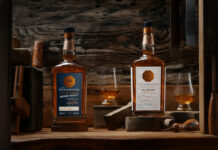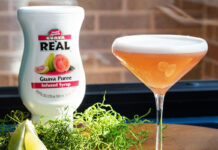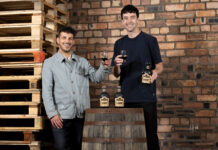Premium packaged category gives cause for sales hope


BEER has not had its troubles to seek in recent times.
Figures published quarterly by the British Beer and Pub Association have shown a chronic decline in sales in recent years, with the latest numbers for the third quarter of last year revealing a 4.8% drop in the volume of beer sold in Britain’s pubs.
But it seems the outlook isn’t all gloomy, with pockets of the category said to be enjoying sales growth.
Brewers and suppliers contacted by SLTN last month said the bottled beer sector is experiencing a “particularly buoyant” period.
Audrey Schillings at Heineken Western Europe Export, whose Czech brand Krusovice is distributed in the UK by SHS Sales & Marketing, said the volume of premium packaged lager sold in Scotland’s bars and pubs climbed 8% last year, with sales up 11% in value terms; the increase is said to have added almost £10 million to the category, which she said is now worth £104m to Scottish licensees.
“Consumers may be drinking less alcohol, but while they are consuming less in volume terms they are looking to treat themselves and this is one of the reasons the premium packaged lager category is performing so well,” Schillings explained.
It’s a view echoed by Miller Brands, which said that packaged world beers are performing especially well.
The firm, whose portfolio includes Peroni Nastro Azzurro, Pilsner Urquell, Lech and Tyskie, highlighted figures from CGA Strategy which showed a 22.9% increase in the value of world beer sold in the Scottish on-trade in the year to September 1, 2012.
For operators seeking to take advantage of the burgeoning sector, it’s all in the range, according to marketing director Sam Rhodes.
“It is essential for licensees to stock a broad range of bottled beers as well as ensure there’s adequate space in the fridge to display them,” said Rhodes.
“This will not only cater for broad repertoires but also help create that ‘point of difference’, helping to attract and retain customers.”
Darryl Hinksman, head of on-trade customer marketing at Heineken UK, whose bottled beers include Sol, Tiger, Heineken and Desperados, underlined the importance of stocking a broad range, saying consumers are “prepared to pay a premium price for a premium drinking experience”. “Licensees should match their range of bottled beers to their customer base and ensure that they stock the appropriate range to meet their needs,” he said.
Training staff to be knowledgeable about the beers is also key if operators are to realise the category’s full potential, Schilling said.
Matching beer and food flavours gives operators a great chance to ‘up sell’.
“Product quality is paramount for premium beer drinkers so it is imperative for staff to be trained in serving techniques to ensure the beer is served as the brewer intended – this applies to bottled as well as draught beers,” she said.
Meanwhile, Miller Brands underlined the importance of the ‘perfect serve’ when it comes to boosting sales.
“Branded glassware helps enhance a pubs’ reputation for serving good quality beer and can, therefore, help drive sales,” added Rhodes.
“Furthermore, consumers are more likely to pay a little more to get a good quality beer in a branded glass, which presents the opportunity for pubs to trade customers up and help drive profits.”
Operators are also advised to maximise the visibility of their bottled range – in the fridge, on point of sale materials and by including beer and food pairings on menus.
Belhaven marketing manager Gordon Muir said licensees who are “smart” with their bottled beer range can create a point of difference for their outlet.
“Matching beer and food flavours gives operators a great chance to ‘up sell’ because it gives consumers a good reason to try something different,” he said.
“A strong prominent position on the menu for matching bottled beers should also help to drive sales.”
Jeremy Houston, national account manager at Innis & Gunn, also highlighted the sales opportunities in beer and food matching. But he said staff training is key if operators are to reap the rewards.
“If they [staff] can’t sell the match with confidence and conviction then the consumer is less likely to trust it,” he said.
“Knowing the history of the brewery, the styles of beers they make and their flavour profiles is extremely important, and they should also know first-hand, by tasting themselves, why the beer and food matches are compatible.”
Image – Stocking well-known bottled beers offers consumers a starting point, according to Miller Brands.




















